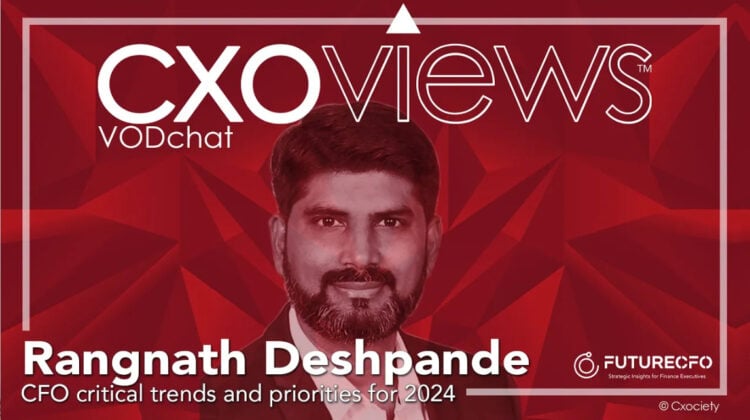One of the buzzwords in the industry over the last few months has undoubtedly been: artificial intelligence (AI).
There have been countless insights addressing the future of AI in financial and digital transformation. The central theme for CFOs is the need for finance leaders to primarily trust in their systems and data outputs, proactively address emerging risks, and identify the right talent in order to capitalise on the promise of AI and these transformational systems.
Also highlighted is the need for organisations to support finance staff in reskilling or upskilling, to build capabilities to support digital transformation in finance and AI.

According to Rangnath B Deshpande, CFO – ASEAN at IT services and consulting company DXC Technology, to be of benefit, organisations must identify where AI can be used, and they must understand how it can be of specific use to the business.
“As a use case, for example, rather than reading all 100 pages of a contract to ascertain the key points,” Deshpande says. “Is there a way that AI could be built into a contract so that it could provide a summary of the key risk items, or the key opportunities that will benefit the business?”
Deshpande notes that this is one of the ways that AI, and other technological advancements, could be used on a day-to-day basis to speed up and simplify organisational decision-making processes.
The CFO, Risk Management Considerations
To manage risk in 2024, Deshpande believes it is important for CFOs to look at collaboration, not only within the finance department, but also with leaders and members of other teams within the organisation, particularly the CIO (chief information officer) and CTO (chief technology officer).
“We need to regularly collaborate with the CIO and the CTO,” he points out. “These technology experts can explain how new advancements, such as AI and ChatGPT, can be useful for the company, and how they could be of benefit to finance operations.”
“Cyber security and integrity issues are also of concern,” says Deshpande. “Collaborating closely with the CIO and CTO ensures that any cyber risk to the business is clearly understood, along with the financial impact of those risks.”
The DXC executive highlights that as a CFO, there is a necessity to be well-versed in cyber security to address the right governance and the right processes in dealing with risks to the organisation.
Deshpande adds that it is also important for companies to regularly evaluate and review the results and outcomes of any measures put in place in times of challenge.
For him, actions taken to navigate around challenges and issues should not create an additional burden and/or cost to an organisation.
The CFO. Addressing technical debt

Investment in new technology can come with a hidden cost. Yesterday’s quick fixes or perfect solutions can fail to hold up over time and eventually become a threat to an organisation. This is how technical debt, or tech debt, is accumulated. The longer a company has been in business and the bigger the organisation is, the more tech debt a company will have created along the way. Tech debt is simply a normal by-product of modernisation.
The reality for most executives is that they are locked in a perpetual cycle of meeting targets on a short-term basis. To stave off disruption, organisations will often invest in technology to help their company innovate, become more efficient and reduce costs. This is the result of prioritising speedy results, or what can be called “quick fixes”.
Finance leaders must be able to address these quick fixes to be able to properly manage possible risks.
“When looking at technical debt,” Deshpande says. “You need to continue to maintain it, but often the productivity is not there.”
He points out that this hampers the organisation’s move to modernisation, and explains that this will be an issue in the future. “Organisations that do not account for technical debt increase their level of risk substantially and are hindering the ability for the business to grow. Quick fixes will only result in a continuous increase in technical debt.”
Deshpande also says that a regular evaluation of technical debt by a CFO is important. Tech debt is an ongoing, multifaceted challenge that organisations will always have to plan for. Aligning the technology roadmap to business challenges and goals, with an eye to managing the accumulation of tech debt is critical.





